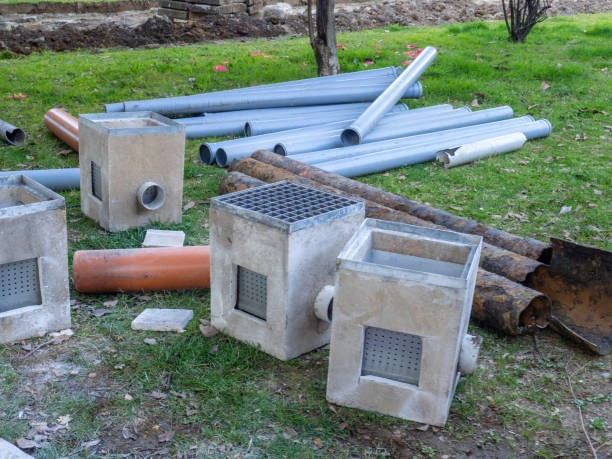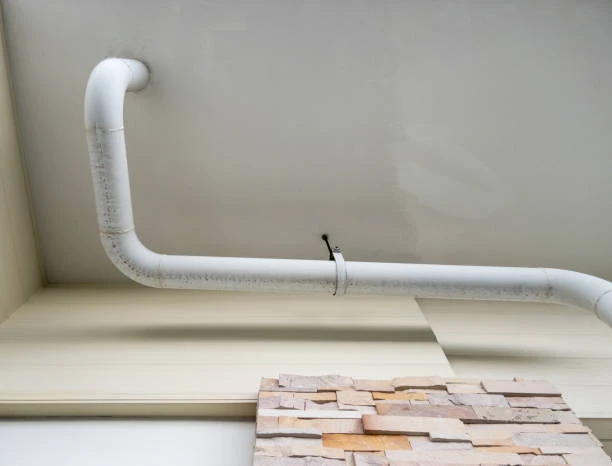NSF International has recently announced the acquisition of PSILab, Inc., a leading provider of advanced plastic pipe and materials testing. This strategic acquisition will allow NSF to expand its capabilities in the plastic pipe industry and enhance its testing and certification services for manufacturers, suppliers, and end-users. The acquisition underscores NSF’s commitment to improving the safety, performance, and sustainability of plastic piping systems.
In this article, we will explore the significance of NSF’s acquisition of PSILab, the importance of plastic pipe and materials testing, and how this acquisition will impact industries that rely on plastic piping systems. Additionally, we will discuss the future of plastic pipe testing and how it aligns with global standards for safety and quality.
The Importance of Plastic Pipe and Materials Testing
Plastic pipes have become a critical component in infrastructure, water management, plumbing, and industrial applications. Due to their widespread use, ensuring the performance, durability, and safety of plastic pipes is essential. This is where plastic pipe and materials testing plays a crucial role.
Testing plastic pipes and materials involves evaluating their strength, durability, resistance to chemicals, and ability to withstand extreme conditions such as high pressure and temperature. For manufacturers and suppliers, rigorous testing ensures that products meet industry standards and regulatory requirements. For end-users, such testing guarantees reliability and safety over the long term.
With the increasing demand for sustainable and high-performance materials, plastic pipe and materials testing has become even more important. The integration of advanced testing technologies ensures that products are capable of meeting modern infrastructure and environmental needs.
What Does NSF’s Acquisition of PSILab Mean for the Industry?
The acquisition of PSILab by NSF is a significant step toward enhancing the quality and safety of plastic pipe materials. PSILab has built a reputation as a leader in plastic pipe and materials testing, offering a wide range of testing services for pipes made from materials such as PVC, HDPE, PEX, and polypropylene.
By acquiring PSILab, NSF gains access to its advanced laboratory facilities, specialized testing equipment, and highly experienced staff. This allows NSF to expand its testing services, increase the breadth of its capabilities, and improve the efficiency of testing processes. Manufacturers and suppliers of plastic pipes will benefit from NSF’s enhanced ability to test materials to the latest standards, ensuring that their products meet the most stringent quality requirements.
Additionally, the acquisition supports NSF’s broader mission of promoting public health and safety by offering more comprehensive certification services for plastic pipe products.
The Role of Testing in Plastic Pipe and Materials Certification
Certification is a vital aspect of the plastic pipe industry. Certification agencies, such as NSF, test materials and products to ensure they meet safety, health, and environmental standards. The testing process includes evaluating properties such as tensile strength, thermal stability, resistance to chemicals, and resistance to UV degradation.
NSF’s acquisition of PSILab allows for more advanced and reliable testing procedures, making it easier for manufacturers to meet certification requirements. As demand for certified, high-quality materials grows, NSF’s expanded testing capacity will help speed up the certification process and reduce time-to-market for manufacturers.
Furthermore, with global markets placing increased focus on sustainability and eco-friendly materials, NSF’s ability to provide reliable testing for recyclable and sustainable materials will further solidify its leadership in the industry.
Advanced Testing Capabilities at PSILab and Their Benefits
PSILab is known for its cutting-edge testing technologies, which allow for more precise and accurate analysis of plastic pipes and materials. These capabilities are now available to NSF customers, providing them with a range of benefits:
- Improved Performance Testing
PSILab offers comprehensive performance testing for plastic pipes, which includes tests for pressure resistance, impact strength, and durability under extreme conditions. These tests ensure that the pipes perform optimally in their intended applications, from water distribution to industrial processes. - Enhanced Chemical Resistance Testing
Plastic pipes are often exposed to harsh chemicals, especially in industrial and agricultural applications. PSILab’s chemical resistance testing evaluates how well plastic pipes withstand exposure to a variety of chemicals, ensuring they maintain integrity and function over time. - Long-Term Durability Testing
Long-term durability testing simulates real-world conditions to predict the lifespan of plastic pipes. By assessing factors such as temperature fluctuations, UV exposure, and stress, PSILab can determine the expected service life of a product. This data is crucial for manufacturers seeking to offer products with longer lifespans. - Custom Testing Services
PSILab also provides customized testing services to meet the unique needs of specific industries. Whether it’s testing pipes for high-pressure systems, medical applications, or sustainable materials, PSILab can create tailored testing protocols that ensure the right results for each product.
These advanced testing capabilities, now available under NSF, will help ensure that plastic pipes are safe, durable, and reliable across all applications.

The Growing Demand for Plastic Pipe Materials
Plastic pipe materials are in high demand due to their versatility, cost-effectiveness, and performance advantages. Industries such as construction, plumbing, agriculture, and industrial manufacturing rely on plastic pipes for a variety of applications. The global trend toward infrastructure modernization, water management, and renewable energy projects continues to drive the demand for plastic pipe systems.
As a result, manufacturers are increasingly focused on producing high-quality plastic pipes that meet or exceed international standards. This has led to a heightened focus on materials testing and certification to ensure that products can perform under demanding conditions.
The integration of PSILab’s advanced testing capabilities will enable NSF to provide the most up-to-date testing and certification services, helping manufacturers keep up with the growing demand for quality plastic pipe materials.
Implications for Sustainability in the Plastic Pipe Industry
Sustainability is one of the most important trends in the plastic pipe industry today. As concerns about plastic waste and environmental impact grow, manufacturers are looking for ways to create more sustainable, recyclable, and eco-friendly plastic pipes.
NSF’s acquisition of PSILab supports the industry’s sustainability goals by enabling more efficient testing of sustainable materials. PSILab’s testing for environmental durability, UV stability, and recyclability will help manufacturers create products that meet eco-friendly standards. Additionally, NSF’s expanded testing capabilities will help support compliance with emerging global environmental regulations.
This acquisition also helps position NSF as a leader in sustainable practices within the plastic pipe sector, ensuring that manufacturers have access to the resources needed to innovate and stay ahead of environmental standards.
How NSF’s Expanded Testing Services Will Benefit Manufacturers
Manufacturers of plastic pipes will benefit from NSF’s expanded testing services in several ways:
- Faster Time-to-Market
With more advanced testing and certification capabilities, NSF can provide quicker turnarounds for manufacturers seeking product certification. This faster process helps manufacturers get their products to market more efficiently. - Improved Product Quality
Advanced testing improves the accuracy and reliability of product assessments. Manufacturers can be more confident that their plastic pipes meet or exceed performance standards, which improves overall product quality and reduces risks of product failure in the field. - Access to Cutting-Edge Technology
By utilizing PSILab’s advanced testing equipment and methodologies, NSF offers manufacturers access to the latest technologies in plastic pipe testing. This ensures that products undergo the most thorough evaluations possible, improving the credibility and competitiveness of the brand. - Expanded Global Reach
As NSF continues to expand its testing and certification services, manufacturers will benefit from increased access to global markets. NSF’s certification is recognized worldwide, and the expanded capabilities enable manufacturers to meet the requirements of various international markets.
The Future of Plastic Pipe and Materials Testing
As the plastic pipe industry continues to evolve, the demand for more advanced materials and testing methods will grow. Manufacturers will need to meet increasingly stringent regulatory standards while also addressing consumer demands for sustainability and performance.
NSF’s acquisition of PSILab is a step toward ensuring that the plastic pipe industry stays on the cutting edge of testing technology and certification. With an increasing focus on durability, chemical resistance, and sustainability, the future of plastic pipe materials looks promising. Advanced testing will play a pivotal role in shaping the next generation of products.
FAQs
1. Why is testing important for plastic pipe materials?
Testing ensures that plastic pipes meet safety, durability, and performance standards. It helps manufacturers produce reliable, high-quality products suitable for various applications.
2. How does NSF benefit from acquiring PSILab?
NSF gains access to PSILab’s advanced testing capabilities, which enhances its ability to offer comprehensive testing and certification services for plastic pipes and materials.
3. What industries rely on plastic pipes?
Industries such as construction, plumbing, agriculture, chemical processing, and manufacturing all rely on plastic pipes for transporting fluids, gases, and other materials.
4. How will the acquisition impact sustainability in the plastic pipe industry?
The acquisition supports sustainability by enabling better testing of eco-friendly materials and helping manufacturers create more sustainable, recyclable products.
5. What are the key benefits of NSF’s expanded testing capabilities?
The key benefits include faster time-to-market, improved product quality, access to advanced testing technology, and expanded global reach for manufacturers.

















